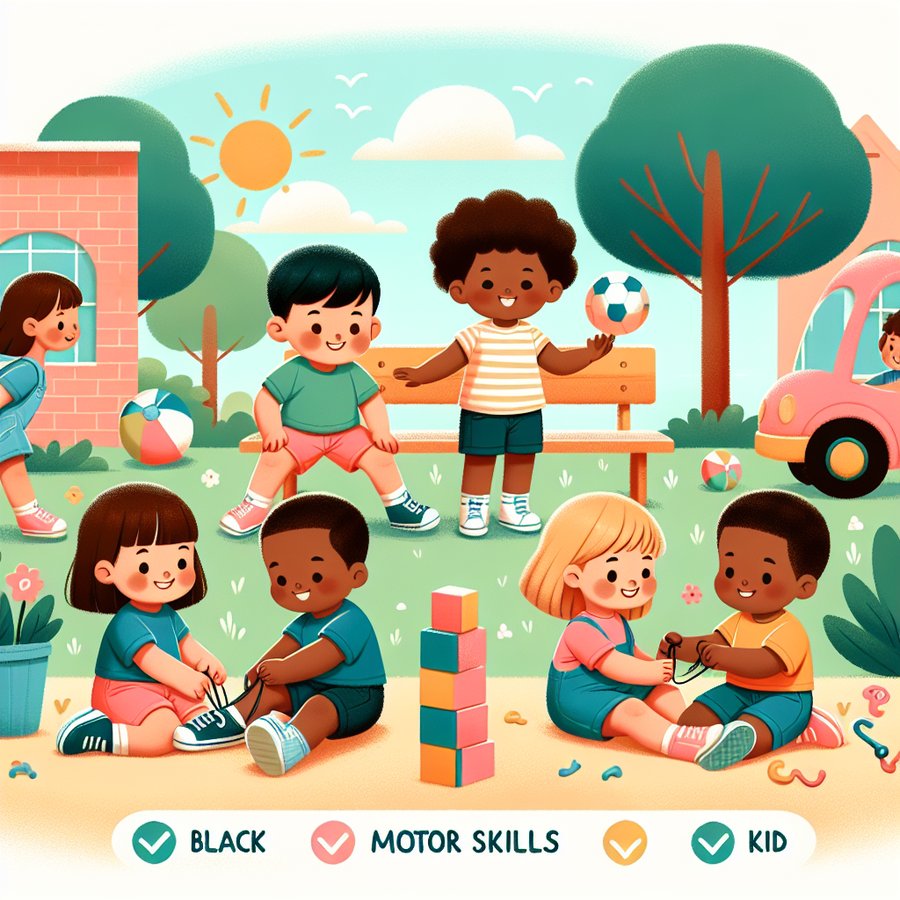Developing motor skills are crucial for a baby’s growth and overall development. These skills are the foundation of your baby’s ability to move, interact, and understand the world around them. From a newborn’s reflexes to a toddler’s ability to walk and run, motor skills cover a broad range of physical activities. In this guide, we’ll explore what motor skills are, their importance, and how you can support your baby’s motor skill development.
What are Motor Skills?
Motor skills refer to the movements and actions of the muscles. Typically, they are divided into two categories: gross motor skills and fine motor skills. Gross motor skills involve larger movements that use the arms, legs, feet, or the entire body, like crawling, walking, and jumping. Fine motor skills, on the other hand, involve smaller actions, such as grasping a toy, writing, or buttoning a shirt. Both types of skills are essential for a child’s development and independence.
As parents, understanding the stages of motor skills can help you recognize milestones and provide the appropriate support. Knowing how and when these skills develop is key to fostering a nurturing environment that encourages healthy growth.
How to Support Your Baby’s Motor Skills Development
Supporting your baby’s motor skill development is about providing opportunities for physical activity, creating a safe space for exploration, and offering encouragement. Here are some tips to help your baby develop these essential skills:
- Encourage tummy time to strengthen neck, back, and shoulder muscles, aiding in crawling and sitting up.
- Use toys that promote grasping, reaching, and pulling to enhance fine motor skills.
- Create a safe, baby-proofed area where your baby can move freely and explore.
- Celebrate milestones and progress, no matter how small, to boost confidence.
Remember, each baby develops at their own pace. Consulting with a pediatrician can provide personalized guidance and reassurance about your baby’s development.
Common Concerns About Motor Skills Development
It’s natural for parents to have concerns about their baby’s development. Here are some common worries and what you can do:
- If you’re concerned about your baby’s motor skill development, observe and record their activities. This information can be helpful for pediatricians.
- Engage in activities that promote motor skills, like baby yoga or swimming classes.
- Use internal links such as crawling, walking, and hand-eye coordination for more directed guidance.
For detailed developmental milestones and when to be concerned, the CDC’s milestone checklist is a valuable resource. If ever in doubt, seek advice from healthcare professionals who can assess and guide your baby’s development.
Motor Skills Milestones to Watch For
Knowing the key milestones can help you monitor your baby’s progress and detect any potential delays early. Here’s a brief overview of some major motor skill milestones:
- By 3 months: Raises head and chest during tummy time, opens and closes hands.
- By 6 months: Rolls over in both directions, begins to sit with support.
- By 9 months: Crawls, sits without support, and might start standing with help.
- By 12 months: May walk independently or with assistance, begins to use objects purposefully.
Refer to resources like developmental milestones for a more comprehensive list and remember, variation in reaching these milestones is common and typically not a cause for concern.
When to Seek Professional Help
If you have concerns about your baby’s motor skill development, it’s important to seek professional advice. Early intervention can make a significant difference. Signs that may indicate a need for professional evaluation include:
- Lack of progress in motor skill milestones
- Asymmetrical movement or favoring one side of the body
- Difficulty with basic movements like rolling over, sitting up, or walking by the expected age
Consulting with a pediatrician can provide clarity and direction. They may refer you to specialists, such as occupational therapists or physiotherapists, for targeted support.
In conclusion, understanding and supporting motor skill development is key to your baby’s growth. By providing a supportive environment, celebrating milestones, and being observant of their progress, you can help pave the way for a healthy development. Remember, each child is unique, and development varies from one child to another. With love, patience, and the right support, your baby will reach their milestones in their own time.













